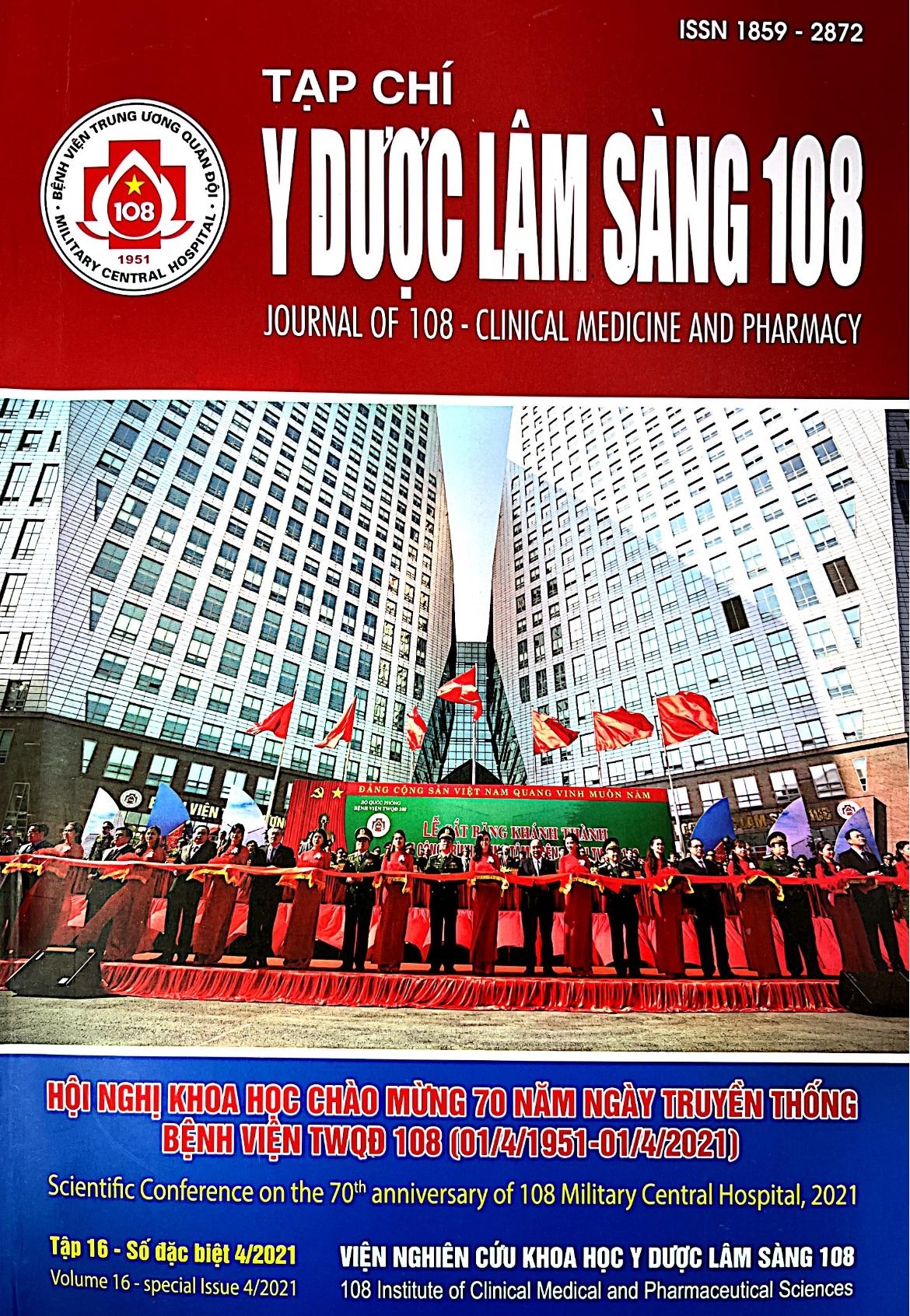Characteristics analysis of using enoxaparin in inpatients at Heart Institute - 108 Military Central Hospital
Main Article Content
Keywords
Abstract
Objective: To evaluate some characteristics in the use of enoxaparin, contributing to improving the quality of treatment. Subject and method: A retrospective study was performed on 111 patients prescribed enoxaparin from September 01 to October 30, 2020. Result: 67.6% of them were male, and mean age was 63.5 ± 16.1 years, the rate of subjects with more than one disease 66.7%. The proportion of inappropriate was high, 30.6% in the prophylaxis group and 32.9% in the treatment group. 60.4% was indicated enoxaparin concomitantly with drugs with a serious interaction, which increased the risk of bleeding but only one case had a bleeding event (0.9%). Conclusion: The administration of enoxaparin in most cases is consistent with the product instructions and treatment guidelines. However, the proportion of inappropriate enoxaparin was still relatively high, 30.6% in the prophylaxis group and 32.9% in the treatment group. 60.4% was indicated enoxaparin concomitantly with drugs with a serious interaction, which increased the risk of bleeding but only one case had a bleeding event (0.9%). So clinical pharmacological interventions are necessary to contribute to ensuring safety and improving the quality of treatment.
Article Details
References
2. Bộ Y tế (2019) Quyết định 2187/QĐ-BYT ngày 03/6/2019 của Bộ trưởng Bộ Y tế về việc ban hành tài liệu chuyên môn “Hướng dẫn chẩn đoán và xử trí hội chứng mạch vành cấp".
3. Hội Tim mạch học quốc gia Việt Nam (2016) Khuyến cáo về chẩn đoán, điều trị và dự phòng thuyên tắc huyết khối tĩnh mạch.
4. ESC/EACTS (2018) Guidelines on myocardial revascularization.
5. James DD, Gregory YH Lip (2019) Perioperative management of patients receiving anticoagulants. Retrieved from https://www.uptodate.com.
6. Sandercock PA, Counsell C, Kane EJ (2015) Anticoagulants for acute ischaemic stroke. Cochrane Database Syst Rev 12(3).
7. Phạm Mạnh Hùng, Nguyễn Văn Hiếu, Đoàn Tuấn Vũ, Võ Duy Văn, Vương Thị Ánh Tuyết, Lê Mạnh Tăng (2019) Lâm sàng tim mạch học.
 ISSN: 1859 - 2872
ISSN: 1859 - 2872
